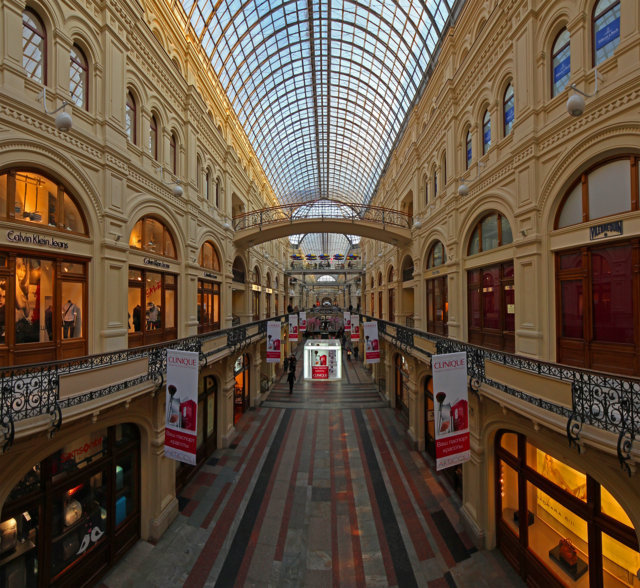 Surprised that Russian consumers are shopping online like the rest of us? Don’t be. Although there is Internet access to shopping outlets, online shopping for Russian consumers has a very different look and feel from shopping habits in North America, western Europe, and the UK. Online rubles are targeted by global giants such as eBay, Amazon.com, and the Alibaba Group in China. In addition, Russian retailers are aggressively pursuing their market share with certain ‘home court’ advantages.
Surprised that Russian consumers are shopping online like the rest of us? Don’t be. Although there is Internet access to shopping outlets, online shopping for Russian consumers has a very different look and feel from shopping habits in North America, western Europe, and the UK. Online rubles are targeted by global giants such as eBay, Amazon.com, and the Alibaba Group in China. In addition, Russian retailers are aggressively pursuing their market share with certain ‘home court’ advantages.
Cash Is King
One of the characteristics Russian retailers like Ozon and Ulmart are maximizing is Russian consumers’ reluctance to use credit cards and other methods of online payment.[1] Larger urban areas, like St. Petersburg and Moscow, see more credit card and debit card transactions and are the areas with higher concentrations of Russian wealth and consumer purchasing. Only about 24% of Russian households had bank accounts in 2011.[2]
Ulmart, especially, has focused on developing a network of outposts in urban locations where consumers may pick up merchandise they order online. The ‘site to store’ practice bypasses the challenges of using the Russian postal service for delivery, and payments, which are primarily made in cash, can easily be transacted at the face-to-face store locations. Ulmart operates the locations as stores, and it stocks the most commonly purchased items in store inventory to facilitate sales. Ozon also operates through urban outpost locations, though it has fewer than Ulmart.
Purchasing online but paying in person is by far the most popular method to obtain goods. Although Russians have been slower to use the Internet on a large scale, studies by Data Insight, a Russian research company, indicate that as many as seven million Russians order something online each month. Russians also favor placing orders by telephone for merchandise they view online, followed by courier delivery and payment in cash.
Ulmart has considered one of the newest virtual payment methods – Bitcoin digital currency – but that may be distant for Russian consumers. On the whole, Russian society is not comfortable with paying via credit and debit card, and it may take years to learn about and become comfortable with Bitcoin exchanges. Further, recent warnings from the Bank of Russia about Bitcoin activities have quashed Ulmart’s pursuit of the payment platform.
Global E-commerce and Local Market Knowledge
Global giants such as Amazon.com and eBay focus on various delivery methods to bring goods to the consumer’s doorstep. Amazon.com recently disclosed its pursuit of drones to provide a personalized approach to package delivery. Russian online retailers, on the other hand, are in tune with the demands of the local market and consumers’ spending practices. Call it ‘behind the times’ if you want, but Ulmart and Ozon play to the comfort level that Russian consumers have with credit cards and electronic transactions in general. This is not dissimilar to the business approaches of very large, regional financial institutions compared to the locally focused business approaches of smaller, community-based financial institutions.
The local-market approach may be engaging for the two metro areas of Russia where online purchasing power is centralized and for those goods that can be delivered through urban outposts; however, broader expansion of the business model may not be possible, limiting return for potential investors.
Lenta, a Russian hypermarket chain, is managed by TPG Capital, a global private equity firm based in Fort Worth, Texas. Lenta has recently made an initial public offering on the London Exchange in which it managed to raise $952 million for its shareholders. However, it may not have been the best time for the IPO given the weakening ruble, slowing Russian economy, and ongoing conflict with Ukraine. Nonetheless, considering the retailers’ primary focus on the accepted practices of the Russian marketplace and lower price since the IPO, this may signal a breakthrough for investors who have been reluctant to invest in Russian online retail operations.

